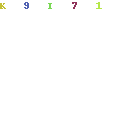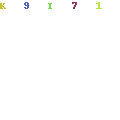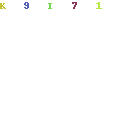Text Size:
Mumbai: On 22 June, Mumbai’s civic body sealed an upscale residential complex in Malabar Hill, one of the city’s most plush addresses, after 21 cases were detected there within a span of a week.
In less than a month, the high-end Malabar Hill and its neighbouring localities in South Mumbai, part of Mumbai’s D ward administrative unit, now have the highest number of sealed buildings — 285 in all — across Mumbai’s island city areas.
Moreover, D ward is also the third-worst performer among all of Mumbai’s 24 administrative wards across the island city and suburbs with regards to the daily growth rate of Covid-positive cases and the doubling rate.
Officials from the Brihanmumbai Municipal Corporation (BMC) say opening up of high-rises for domestic help and drivers, many of whom travelled back from their villages, and increased commuting by residents within the city and outside for work are the main reasons for the spike in numbers.
Also read: Maharashtra plans app-based ambulance service like Uber, Ola
Doubling rate second lowest in Mumbai
Overall, D ward has recorded 3,648 Covid cases as of 19 July, a 12.3 per cent jump from a week earlier when the cases were 3,246 as of 12 July.
Mumbai’s tally of Covid-positive cases increased by 8.8 per cent in this period to 98,603.
We are deeply grateful to our readers & viewers for their time, trust and subscriptions.
Quality journalism is expensive and needs readers to pay for it. Your support will define our work and ThePrint’s future.
SUBSCRIBE NOW
In comparison, on 2 June, the ward had recorded 1,258 cases and the daily growth rate was 2.7 per cent, as compared to the entire city’s average of 3.64 per cent.
Of D ward’s 3,648 Covid positive cases, 874 are currently active. The doubling rate for the ward is 42 days, while Mumbai’s average doubling rate is 57 days.
Also read: Navi Mumbai ‘rape’ victim tests Covid-negative, but kept in same quarantine centre as accused
‘Cases in high rises, almost none in slums’
The D ward, with a population of about 3.5 lakh people, is home to some of Mumbai’s most expensive real estate addresses such as Malabar Hill, Napean Sea Road, Walkeshwar, Peddar Road, Altamount Road, Kemps Corner, among others.
“Until May, 60-65 per cent of the cases in my ward used to be from the slums and chawls. Today, it is not even 5 per cent. Most of our cases are in highrise buildings,” said Prashant Gaikwad, assistant municipal commissioner at the D ward.
Gaikwad added that in about 30 per cent of the cases being detected, the source of infection is the domestic help. “A number of these high-rises started allowing domestic help and drivers from June. Many had just come back from their villages, or were travelling from other wards. The residents are proactively getting their house help tested,” he said.
“And whenever I get a case from a building, we find at least 2-3 more cases in the same household. Most are asymptomatic.”
Even in the building that was sealed on 22 June, 19 of the 21 found to be Covid-positive were domestic help, drivers and security staff.
The ward officer also said the ward is home to several employed in high-profile jobs or having businesses. “They have been travelling within and outside the city since last month,” Gaikwad said.
The response
Anant Patel, secretary of the Carmichael Road ALM (Advance Locality Management), said all buildings in his locality are taking utmost precautions by disallowing non-essential visitors, having stay-in house help as much as possible, limiting the use of drivers and sanitising common areas.
Patel, a resident of the Usha Kiran building, one of the first skyscrapers in the country, said his society has formed a ‘Covid taskforce’ to take decisions about lockdown relaxations within their society after discussion with members.
“The task force has about 10 people. We are taking calculated risks. If there are any senior citizens, we let them meet their families. Drivers are not allowed to linger all day long, and we have requested residents to only call them 10 mins before they need them,” Patel said, adding the task force has been having regular social distancing meets in the society garden or on apps like Zoom.
Ujwala Singhania, a resident of a duplex complex on Peddar Road, said, “No visitors, besides very close family, are allowed in the building. The staff is all living here. Drivers are also allowed only at the gate. Everyone is a bit scared. We are all taking precautions.”
Also read: The ‘thick skinned’ civil engineer behind ‘Dharavi model’ and Mumbai’s footpath challenge
Subscribe to our channels on YouTube & Telegram
News media is in a crisis & only you can fix it
You are reading this because you value good, intelligent and objective journalism. We thank you for your time and your trust.
You also know that the news media is facing an unprecedented crisis. It is likely that you are also hearing of the brutal layoffs and pay-cuts hitting the industry. There are many reasons why the media’s economics is broken. But a big one is that good people are not yet paying enough for good journalism.
We have a newsroom filled with talented young reporters. We also have the country’s most robust editing and fact-checking team, finest news photographers and video professionals. We are building India’s most ambitious and energetic news platform. And we aren’t even three yet.
At ThePrint, we invest in quality journalists. We pay them fairly and on time even in this difficult period. As you may have noticed, we do not flinch from spending whatever it takes to make sure our reporters reach where the story is. Our stellar coronavirus coverage is a good example. You can check some of it here.
This comes with a sizable cost. For us to continue bringing quality journalism, we need readers like you to pay for it. Because the advertising market is broken too.
If you think we deserve your support, do join us in this endeavour to strengthen fair, free, courageous, and questioning journalism, please click on the link below. Your support will define our journalism, and ThePrint’s future. It will take just a few seconds of your time.
Support Our Journalism
Source: https://theprint.in/health/mumbais-elite-sobo-sees-covid-spike-as-cases-move-from-slums-to-apartment-towers/464813/


